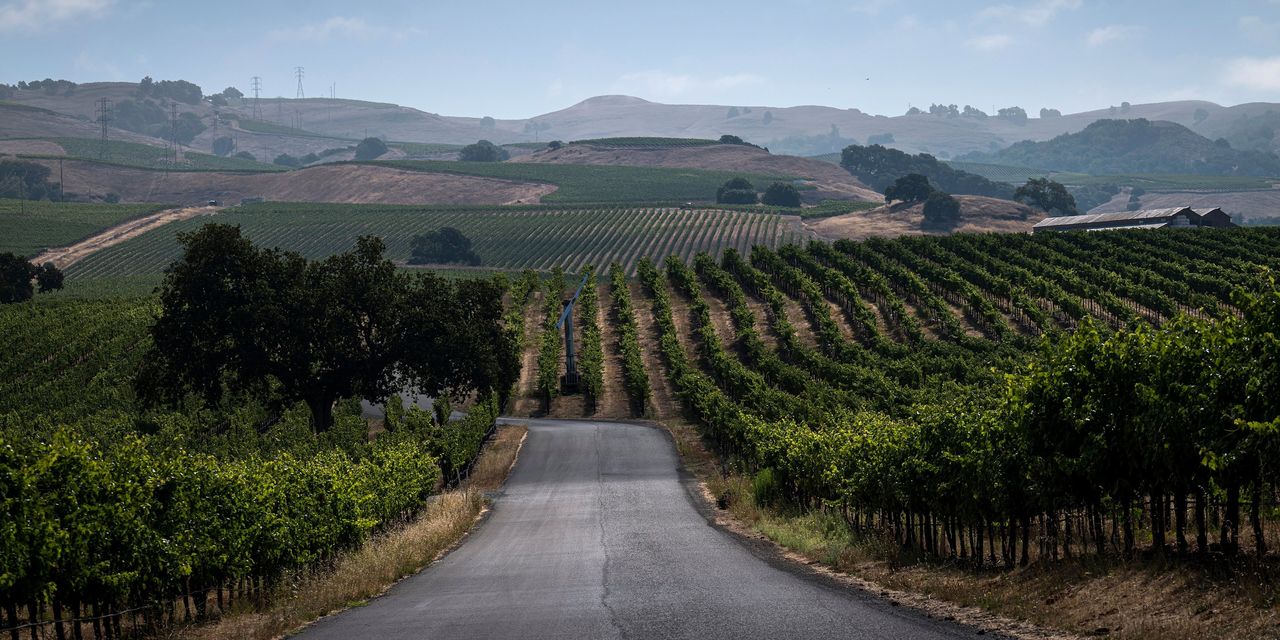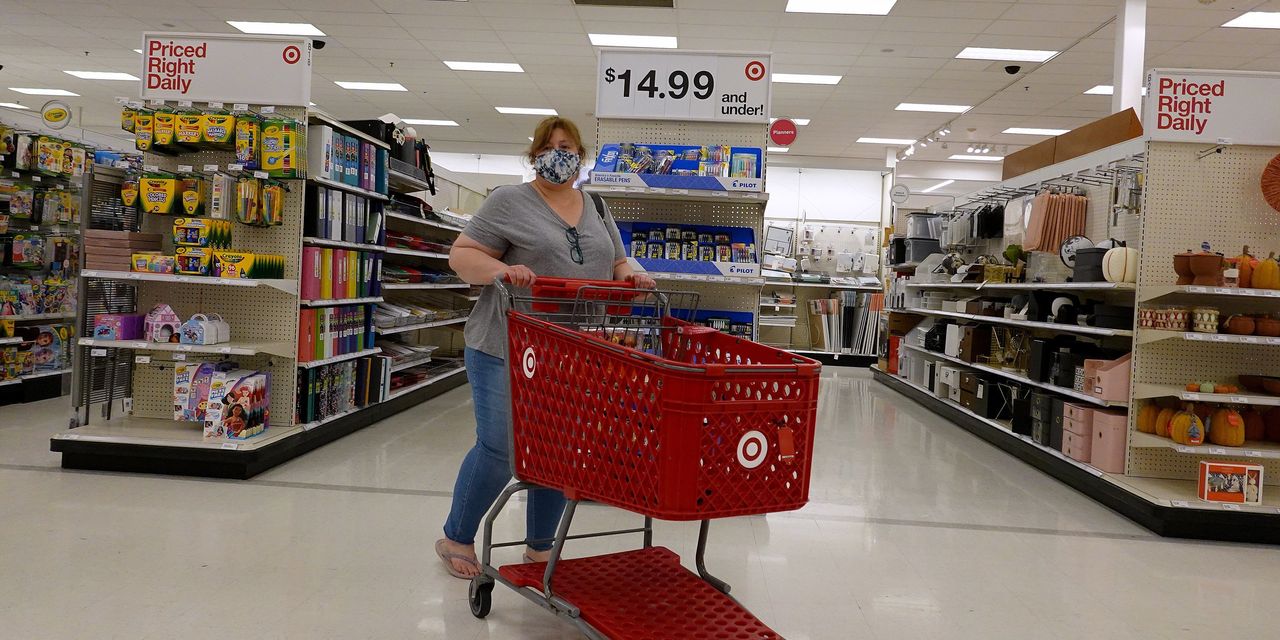
Deal makers have targeted the wine industry, as investors bet on rising prices for winery acreage despite a Covid-19 hit to demand for the beverage.
Deals by private-equity funds to invest in wineries, vineyards and distributors have risen 75% in 2021 so far, compared with last year, according to Refinitiv. There has also been a jump in mergers and acquisitions, with companies spending $8.1 billion this year to snap up wine-related firms, compared with $1.8 billion last year, Pitchbook data showed.
“This has been a year of blockbuster deals in the wine industry,” said Stephen Rannekleiv, a beverages strategist at Rabobank. “In the 15 years I’ve been covering wine, I have not seen anything like this.”
Recent large-scale deals include the sale of the Chateau Ste. Michelle wine estate in July to private-equity firm Sycamore Partners for $1.2 billion and the merger of Vintage Wine Estates with special-purpose acquisition company Bespoke Capital Acquisition Corp. in June in a $690 million deal. California winery Duckhorn Portfolio Inc., backed by TSG Consumer Partners LLC, another private-equity investor, went public in March, valued at nearly $2 billion.
Many parts of the wine industry are still recovering from the pandemic. Sales dried up when restaurants, bars and tasting rooms were closed for months during lockdowns. Global wine consumption fell 3% in 2020 to the lowest level in 18 years, according to the Paris-based trade body International Organization of Vine and Wine. Premium wines were hit the hardest, it said.
Despite this, in France’s famed Bordeaux wine region, valuations for higher-end vineyards hit records in 2021, according to an analysis by Triangle Capital, an M&A advisory firm with a focus on the wine industry. Château Beauséjour, a vineyard in the St-Émilion region, sold for €11 million ($12.8 million) per hectare in April. A comparable transaction in 2017 valued Château Troplong Mondot, a neighboring vineyard, at €7 million per hectare.
SHARE YOUR THOUGHTS
What is your outlook on the future of the wine industry post-Covid? Join the conversation below.
Vineyard valuations are being driven by investors’ expectations of what they could sell a property for in a few years, rather than the money it makes from producing wine, according to Frédéric Dubois, a senior banker at Adviso Partners, a financial advisory firm in Bordeaux.
“In this segment, the profitability of the estate is absolutely not the point,” Mr. Dubois said. “Even if you are absolutely stupid with your management of the estate, you are more or less sure that you will make money selling it.” He said he has recently seen valuations with annualized growth rates of around 20% for high-end vineyards.
The capital gains of the estates typically exceed those of traded wine, even rarer bottles. The Liv-ex Fine Wine 100 Index, an industry benchmark that tracks the value of premium wines, showed a 14.2% increase since the beginning of the year. That compares with a 14.5% rise in the S&P 500.
Blank-check firm Bespoke Capital Acquisition was first planning to acquire a cannabis company, but when it wasn’t able to find a large-enough deal, it became the first SPAC to enter the wine industry.
“It was a pretty different deal than a lot of SPACs. The winery already had revenues, earnings, growth prospects and the like,” said Mark Harms, nonexecutive director of Vintage Wine Estates and chief executive officer of Bespoke Capital before the merger. Vintage plans to use the money raised in the SPAC deal to fund M&A deals to expand the business.
A SPAC is a shell company that lists on an exchange and then seeks to acquire a private company to take it public. Many have bought software and clean-tech industries, but are now looking further afield.
“With more than 430 SPACs in 2021 looking for acquisition targets, there are not enough unicorns ready to go public,” said Jim Osman, portfolio lead at research firm Edge Group. As a result, “SPACs are looking for alternative companies.”
Some longtime players in the wine industry aren’t convinced that financial firms will necessarily achieve the stable returns they seek in this business, especially if they have a shorter time horizon.
“You are working with natural pressures, which makes it hard to leverage. In the period of 10 years, you will typically have two to three exceptional years, one to two awful years and five to six average years,” said Jean-Luc Coupet, managing partner of Wine Bankers & Co., a Paris-based boutique investment bank.
His company is currently advising on the sale of three wine estates in Burgundy that are coming to market after an intense frost in the spring ruined much of the harvest and killed younger vines. Despite this, he is expecting two to have valuations of around €100 million, which he said would be an extension of the rise in valuations due to high demand.
Write to Anna Hirtenstein at [email protected]
Copyright ©2021 Dow Jones & Company, Inc. All Rights Reserved. 87990cbe856818d5eddac44c7b1cdeb8








